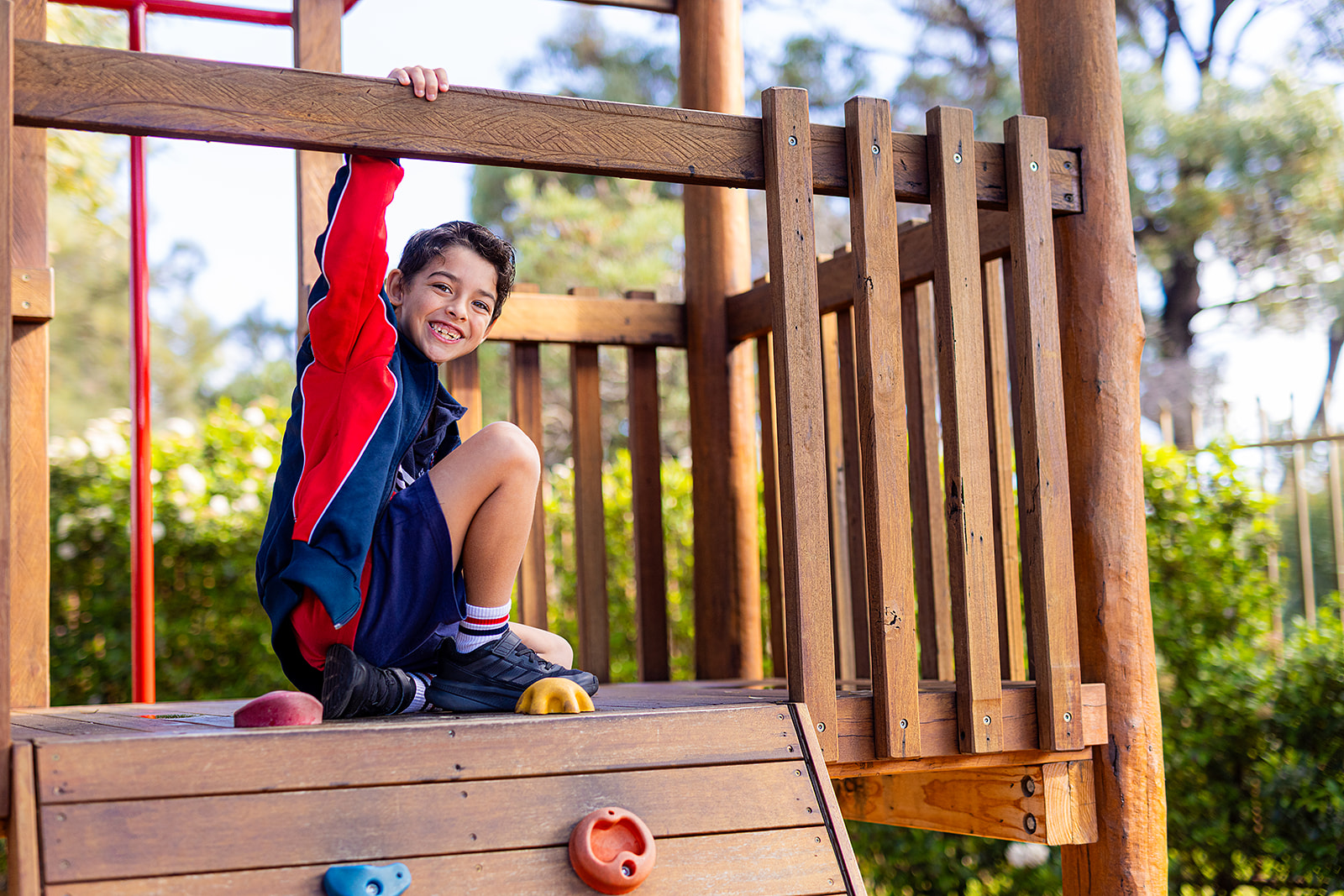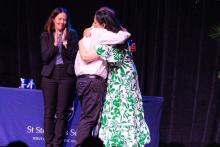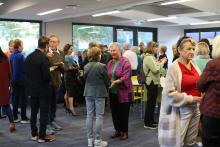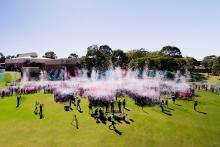

It’s funny who you sit next to at a Business News Breakfast, recently as our Head of Community Relations, Fairlea Baxter was assessing the fruit platter and assorted pastries on the table, the gentleman sitting next to her introduced himself as Saman Majrouh, Director of QETRA and a proud St Stephen’s School alumnus.
‘Duncraig, 2006 I was in Alethea’ he proclaimed with a huge smile. His obvious pleasure with the educational institution that had shaped his formative years was evident.
After being told the story I looked Saman up on LinkedIn, his resume was impressive. He graduated from the University of Western Australia with a Bachelor of Engineering and Commerce. He’d spent the last 13 years working as an Engineer and Director in the Mining, Energy and Infrastructure sector but the part of his profile that caught my eye were his soft skills. His expertise in communication, time management and critical thinking. Skills that have their foundations in the home and the classroom.
According to RMIT 64% of employers agree that job seekers who display strong soft skills are more likely to land a job. As role requirements change with increasingly sophisticated technology and generative AI, it’s these human skills that are highly sought after. Skills that have their seeds of development in the early years and continue to be refined over a person’s lifetime.
The 2025 Future of Jobs Report from the World Economic Forum brings together the perspectives of over 1000 global employers, representing more than 14 million workers across 22 industry clusters and 55 economies from around the world. A key finding in the report was that analytical thinking remains the most sought-after core skill among employers, with 7 out of 10 companies considering it essential in 2025. This was followed by resilience, flexibility and agility, along with leadership and social influence.
Whilst AI and big data topped the list for fastest-growing skills the report outlined that creative thinking, resilience, flexibility, agility, curiosity and lifelong learning were all expected to continue to rise in importance over the 2025 – 2030 period.
Lifelong learning starts in kindergarten through exploration-based techniques where a child’s curiosity drives the curriculum. Play based learning is proven to create positive attitudes towards education, laying the foundation for ongoing success at school and fostering a life-long love of learning. The workforce of tomorrow is quite literally cultivated in the sand pits of today.
Resilience and flexibility are nurtured when students are out of their comfort zones. Whether it’s Year 1s and 2s being responsible for their own possessions during a two-week swimming excursion period or getting on stage to perform Peter Pan in front of 250 people like our Year 4 – 6’s are currently doing. School is the ideal environment for fostering and developing soft skills because it doesn’t matter if the student fails, stumbles or trips. That’s what school is all about, trying, stumbling and then trying again. When a child is in an environment where they feel it’s safe to fail their creative thinking, curiosity and lifelong learning will be unlocked. In a recent interview with our Communications team St Stephen’s School graduate Cathie Lambert (Class of 1990) said that ‘At school, I was encouraged to ask questions and be curious which helped me on the journey of coming to know myself and how to navigate relationships. I felt supported in this learning – when I succeeded and when I tripped up.”
As students enter secondary school the opportunities to refine and harness highly sought after soft skills continue. Rookie debating, service-learning opportunities and international tours are just some of the growth opportunities at our School. Whilst engaging in these important developmental milestones a student won’t realise these experiences are helping to shape how they’ll approach their future careers. It will only be apparent to them years later, like 2014 graduate Nirali Parikh who recently summed up her secondary experience by stating, “School taught me time management and organisational skills as well as critical thinking and interpersonal skills which are vital in any workplace. The purpose of secondary education is to open your mind and prepare you for life beyond school, the purpose of tertiary education is to gear you towards a field you want to be in.”
I agree with Nirali. I would also add that the purpose of all schooling not just secondary, is to open your mind and prepare you for life, starting with finger painting and ending with essays and complicated mathematical equations.
Reading and writing is one thing but as Theordore Roosevelt famously said, “To educate a person in the mind but not in morals is to educate a menace to society”. St Stephen’s School has always had a holistic approach to education where equal weighting is placed in a student’s academic and emotional outcomes. Stephen Paul (Class of 1994) said, “I think the school, above all, just helped to make me a genuinely decent person, a trait that can actually help you go a long way in life.” As an educator I don’t think there is a higher compliment than this.













